https://foreignpolicy.com/2023/03/10/russia-ukraine-putin-war-future/
Staring Down the Black Hole of Russia’s Future
Foreign Policy · by Anastasia Edel · March 10, 2023
By , a writer and social historian.
We used to live in a world where large-scale conventional wars that left thousands of dead and wounded existed only in video games and books. A world where mutually beneficial commercial activity was guaranteed by a global security order, to which the world’s leading nations adhered in exchange for membership in a shared civilization. A world trending irreversibly toward liberal democracy.
Russia’s war of choice shattered these assumptions. In the heart of Europe, at least 18,000 civilians are dead, 14.5 million displaced , and thousands more tortured, mutilated, forcefully resettled. The trauma and misfortune Russia has wrought, unprovoked, on Ukraine is akin to those depicted in the tragedies of antiquity—advanced weapons such as drones and missiles notwithstanding. The barbarity of Russian warfare defies everything modernity stands for.
When this war is over, though, there is still hope that Ukraine will take its place in a brighter and honorable future, earned through the heroism of its people. The same cannot be said for Russia, which now finds itself staring down the inevitable black hole of its future.
We used to live in a world where large-scale conventional wars that left thousands of dead and wounded existed only in video games and books. A world where mutually beneficial commercial activity was guaranteed by a global security order, to which the world’s leading nations adhered in exchange for membership in a shared civilization. A world trending irreversibly toward liberal democracy.
Russia’s war of choice shattered these assumptions. In the heart of Europe, at least 18,000 civilians are dead, 14.5 million displaced , and thousands more tortured, mutilated, forcefully resettled. The trauma and misfortune Russia has wrought, unprovoked, on Ukraine is akin to those depicted in the tragedies of antiquity—advanced weapons such as drones and missiles notwithstanding. The barbarity of Russian warfare defies everything modernity stands for.
When this war is over, though, there is still hope that Ukraine will take its place in a brighter and honorable future, earned through the heroism of its people. The same cannot be said for Russia, which now finds itself staring down the inevitable black hole of its future.
I came of age as the borders of the Soviet Union collapsed and Russia embraced the West. I was one of those euphoric young Russians standing amid the ruins of communism, looking forward to a life free of ideology, oppression, and untruths. Back then, it seemed that after a decades-long totalitarian detour, Russia had finally found its true path—that of a free, democratic country. Now I’m forced to revise, yet again, my assumptions about what Russia is and what it will become.
This time, I, like many others, struggle to see any light in Russia’s future. I asked a group of military experts, sociologists, journalists, and economists who think about Russia professionally to help me envision the future. If there’s any agreement among them, it is that Russia as we knew it—a semi-mythical Eurasian nation that, according to its own lore, had saved the world from the Mongols and Nazis, endured a communist experiment, and then reunited itself with the West—is no longer there. Should Russia endure as a state within its current borders, we might as well come up with a new name for it.
So deep is the country’s malaise that even Russian President Vladimir Putin’s exit from the Russian political stage, whenever it occurs, is unlikely to change the country’s current trajectory. Too many red lines have been crossed, too many points of no return passed. Increasingly lawless, economically doomed, and morally bankrupt, Russia is running out of good endings, as though caught in a reenactment of its own sad folk tale in which the only choices available to the protagonist are to lose his horse, lose his life, or lose his soul.
Police officers detain a woman as she protests against Russia's invasion of Ukraine in central Moscow in 2022.
Police officers detain a woman as she protests against Russia’s invasion of Ukraine in central Moscow on March 20, 2022. AFP via Getty Images
War is a great catalyzer: It sharpens trends already in place and hastens their inevitable denouement. Russia’s descent into authoritarianism started a long time ago, but until Feb. 24, 2022, Putin felt compelled to at least maintain the semblance of a managed democracy.
Not anymore. “War has accelerated Russia’s descent from autocracy and into a totalitarian state,” said Mark Feygin, a former Russian opposition politician and lawyer who now runs a popular YouTube channel tracking the war. Russians’ two remaining freedoms—the ability to leave the country and to access alternative sources of information —can be shut down at any moment. Lev Gudkov, a prominent Moscow-based sociologist and director of Russia’s last independent pollster, the Levada-Center , described Putin’s regime as “totalitarianism 2.0,” under which key repressive instruments of the Soviet Union, including a politicized police force, subservient courts, and media censorship, have been reinstituted in a reversal of 1990s liberalism.
One clear break from its Soviet past is the Kremlin’s willingness to operate outside of any legal boundaries, or even its own societal norms. The distance between prison and success has always been short in Russia, but Russia today is a country where private individuals such as Yevgeny Prigozhin, the founder of the infamous Wagner Group, can recruit convicts, arm them with weapons supplied by the Russian Ministry of Defense, and throw them to the frontlines. Those who manage to survive are granted amnesty and hailed as heroes , despite their criminal pasts.
It will be a country of warlords and criminals, where force is the only argument and crimes are not crimes so long as they are committed for the Motherland.
Exiled businessman Mikhail Khodorkovsky, Russia’s richest man before Putin imprisoned him, said Putin had “reset the rules of the game towards pure violence.” Russians never expected much from their historically weak legal system, but now they can be punished outside of the court of law in a positively medieval fashion .
This brutal “justice” isn’t limited by Russia’s borders, or battlefield lines. In case it wasn’t already clear by the poisoning of Alexey Navalny or Sergei Skripal, Russian agents’ suspected involvement in the recent Spanish letter bomb campaign—whose targets included the Spanish prime and defense ministers, and foreign diplomats—is yet another indication that Russia will resort to terrorism to achieve its goals, a hallmark of a failed state.
Whatever Russia emerges after the war, it won’t be the Russia of Chekhov and Dostoyevsky, the country that once tantalized Western intellectuals with its perennial quest for meaning and capacity for the sublime. It will be a country of warlords and criminals, where force is the only argument and crimes are not crimes so long as they are committed for the Motherland.
Russian soldiers run along Red Square in central Moscow.
Russian soldiers run along Red Square in central Moscow on Sept. 29, 2022, as the square is sealed prior to a ceremony of the incorporation of new territories into Russia. ALEXANDER NEMENOV/AFP via Getty Images
If this metamorphosis worries Russians, they show few signs of it. Having once considered themselves part of a peace-loving nation that picks up arms only to defend itself , the population has now closed ranks around its war-waging president. “If at the start of the invasion we saw fear and disorientation, towards the end of 2022 our polls showed increased public support for the authorities,” Gudkov told me.
In a repressive state, polls may not accurately reflect the true sentiment behind perfunctory answers, and samples may be biased towards pro-government participants, because those who don’t agree are afraid to participate. But they do indicate an overall trend. Of the 72 percent indicating their support for the government, 20 to 25 percent are actively pro-war—either because they have bought into Putin’s ressentiment narrative or been convinced that Russia really is surrounded by enemies. Propaganda pours daily from every TV screen in the country, and it is effective in manufacturing a form of organized mass consensus.
Many Russians likely share some psychological propensity to justify the war because if what they believe—that their country is engaged in a righteous war against forces of evil—is untrue, then the alternative is being complicit in its crimes.
Many Russians likely share some psychological propensity to justify the war because if what they believe—that their country is engaged in a righteous war against forces of evil—is untrue, then the alternative is being complicit in, and thus culpable for, its crimes. Still, the majority may simply be afraid to protest given the scale of repression they experience and the regime’s track record of brutality against dissenters. “People feel impotent to influence the regime, so they adapt,” said Mikhail Fishman, a Russian independent journalist and host of a popular analytical show that is blocked in Russia.
As economic conditions worsen, Russians will simply be told to tighten their belts further and make sacrifices for Russia’s “great victory.” Those sacrifices won’t be small. Sergei Guriev, a professor of economics at Sciences Po in Paris, warned of the “catastrophic” economic impact of Western sanctions on the Russian oil and gas sector, the main source of funding for the federal budget.
Equally bad for Russia’s economic prospects is its unprecedented brain drain. Since the start of the invasion, more than a million people, or 1.5 percent of the country’s labor force, have fled. Whether afraid of being drafted or repulsed by Putin’s war against a nation with which Russia shares centuries of common past, those who leave tend to be more educated and productive. Their absence will prevent Russia from developing knowledge-based industries or diversifying from an oil- and gas-based economy in the future. Likely a long-term pariah state, Russia will continue
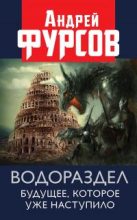
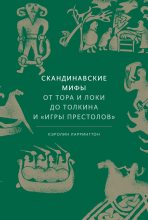
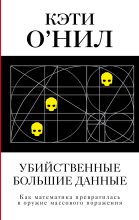
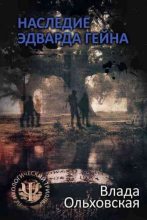
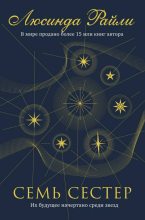
![Бестселлер - Донато Карризи - Сборник "Мила Васкес" [3 книги] - читать в Литвек](/tcover/81/t457381.jpg)
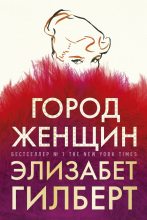
![Бестселлер - Яна Вагнер - Сборник "Вонгозеро" [2 книги] - читать в Литвек](/tcover/45/t457645.jpg)